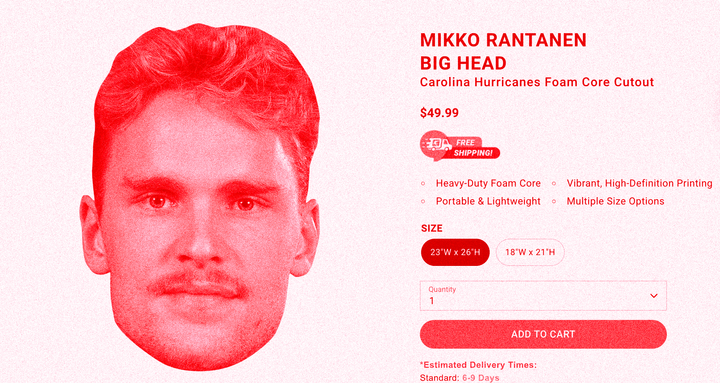on cometbus + the end

Right now, I’m on a plane to Nashville then I will get on another plane to Chicago to stay with my family for a while. I’m writing in Microsoft word which I hate doing. My newsletter philosophy is that it’ll only get done if I write it in Substack directly. In lieu of that I’d usually write in my phone’s notes app then frustratingly copy and paste into the mobile web version of Substack. Unfortunately, I have decided to stop publishing religiously in lowercase but will not give up the voice I feel it gives my more casual communications so that option was out. I also have another flight to catch after this and don’t have the battery power.
Anyway, I’m on the plane reading Cometbus Post-Mortem. I guess this newsletter is about that. I’m about halfway done with it which is the perfect time to internalize everything and dump my brain.
I’ve never read a Cometbus zine, but I know what they look like. Handwriting, all inky and wet looking like all the old punk zines. I’m generally pretty adverse to older punk stuff. All the good political stuff seems to have an asterisk next to it saying the person writing it ended up being a nazi or a creep or both. All the band stuff is boring. I’m sick to death of the nostalgic evangelizing of the past without a look to the present or future. If I want to hear a story about a bad band or sweaty building from someone who was a teenager when they were active, I could just ask any of the older punk people I know via Twitter that are generally happy to expound on the weird stuff they’ve been finding on youtube or through weird bandcamp postings.
In fact, it was one of those exact types who sent me an interview with Aaron Cometbus that spurred me to buy this book when I saw it in a small bookshop in West Philly a couple days ago. The interview is good for a lot of reasons, but I think the most endearing part of it and Post-Mortem is how he talks about people and the end of these things we hold as cherished— these leftist, diy, punk, anarchist things.
First off, the quiet part loud: the people running it are usually the reason for the end.
Then, the follow up: when the publications and venues and labels and shops are gone, the people remain.
We often consider independent music something to laud as better and more worth our time and money. The smaller the better. But it seems around every corner people are getting ripped off.
Victory. Bloodshot. Tiny Engines. All that weird stuff with SideOneDummy a couple years ago. Labels with bad financial reputations signing bands for a bunch of albums, a separate scam all in itself. Labels who had to be hounded for royalties by at least one band and then went away for a bit—until they came back and started signing teenagers again. Tiny bedroom labels run by 20 year olds that sell but fail to actually mail tapes or merch.
It seems most everybody’s owed money their label already spent on signing a new band because it seems most everybody could use a course on proper Excel usage. The lie of the internet age—and even more so the lie of punk—is that anybody can do it.
My colleague in music Twitter punditry and phenomenal writer, Eli Enis, recently tweeted some questions he asks himself with regard to music journalism that keep him grounded in why he does what he does and, perhaps more importantly, how he goes about it. Those questions are all rooted in interrogating who you’re writing for.
The worst music writing is done for a pat on the head by the artist. The best is written for listeners and people who trust you.
I think most is done for other writers, but that’s more a failure of the journalism ecosystem than anything.
I think a lot of the same rules go for labels, it’s just that the people you’re working for are going to be different. You can tell music writers who would rather be musicians and do it for the proximity to fame, whatever that means on whatever level, just as you can feel when labels really care vs. when labels are doing it for themselves, mostly. They want to be a part of it and probably started well intentioned enough.
However, just as in the intentional tort of battery, if a reasonable person could foresee their actions ending in harm, they’re still to be held liable. Good people with good intentions can and will do harm. Historically, this harm will eventually be a death knell for a label or what have you. In the past, these institutions live on in inky zine pages and the people who survived. Now, hey, maybe it’ll get acquired by an investor or larger corporation.
I think the weird part of reading Post-Mortem now is that a lot of the lost things he goes over at least went out on their own terms. They self-destructed.
DIY to die if you will.
Well, a lot of the people did at least. Sometimes the spaces live on for new people. The consistent turnover of young people wanting to destroy their friendships over art.
When we look at institutions now that are shuttering and incapable of continuing it’s not coming from inside the house. I just landed in Nashville for my connection to Chicago to my friends and people I respect mourning news that a promoter in Texas just shuttered due to covid.
None of the places I have the most love for in Chicago have shutdown yet but all too often I watch my new friends in Philadelphia mourn a space they love. I watch my friends mourn the lives they loved and the communities they built talking over merch tables and too expensive beer.
I also watch the people I love and respect infight online over dumb bullshit at least once a week. That’s an implosion.
Every week. Petty terminology differences in describing similar ideologies. Young people fighting over whether a band is a small business. Snide, frustrated comments about anything and everything.
People still want to destroy their immediate surroundings so maybe the fire is still coming from inside the house and there’s always been outside factors putting pressure on. So maybe it’s not so different now than it ever was.
Except, and importantly, you can’t be forced to look someone in the face and realize most people are nice enough. You can instead just write someone off for the way they worded something and that’ll be it forever. Compounding
I think that’s the more insidious part of this because I read the last page of this book. Aaron calls for figuring out how to make the things we love last, but it seems to me he already answered that question over 10 years ago.
It’s just that if Gilman were to end, what would be left of Berkeley?
Well, the people would be left.
And there we find my first impulse: well the people will still be here even if every building we love shuts down. People will come back to the shows and they’ll start promoting again and everything will eventually be better again. If we’re still kind to each other and don’t hurt people any more than we already have, we’ll still have the people.
But as I sit back down in a plane with more people in one place than I’ve experienced in the last 9 months, I remember that we aren’t guaranteed our people just as we aren’t guaranteed our spaces. We don’t always get to be the when and why and how everything decays. Sometimes those things are out of our hands.
I didn’t think this newsletter would end up being about kindness, but most things with me end in community. I think one of the things I’ve gotten out of having a lot of internet community is a heightened willingness to hear people out and have more private conversations. Not being a teenager anymore in online spaces and learning a lot more about my mental health through various levels of treatment have led me to realize that not every personal slight or disruption needs to be public.
Sometimes you can just dm the tweet to a friend and make your shitty comment there. Or at least try to think how your wording could come off to other people who don’t know you. Certainly you shouldn’t tell someone who took your tweet—or your friend or partner’s tweet — more seriously than intended.
At any rate, it’s all we have now. Be kinder. Be more supportive of your friends. If you don’t like someone, well, you don’t have to interact.
Even that person’s probably not really your enemy.
Miranda Reinert is a zine maker and law student based in Philadelphia. She is looking for friends. Follow me on Twitter for more on music and other things like bait tweeting the music community and live tweeting The Sopranos: @mirandareinert. I also just opened up a paid tier of this newsletter which for $5 a month (or $40 a year! what a deal!) you’ll get free zines as I make them and one upon sign up! Wow! But as always, thanks for reading!




Comments ()